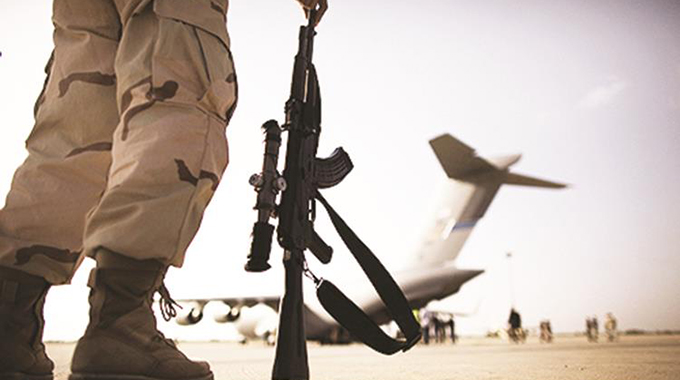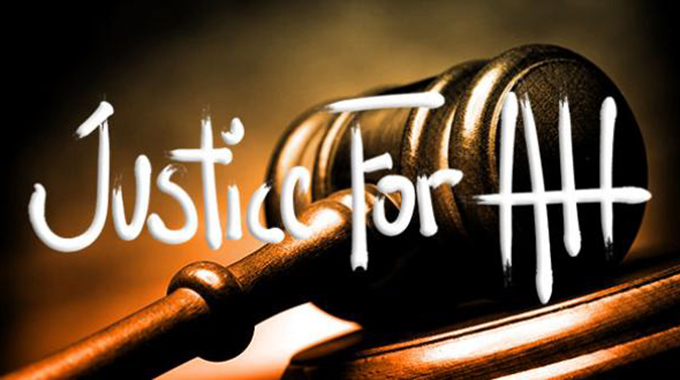Can Libya break its vicious cycle?

David Wood Correspondent
On the final day of April, Cairo hosted a crucial meeting between the African Union, Arab League, European Union and United Nations. The topic: Libya. After the summit, the delegates announced their recommendation – the embattled nation should hold presidential and parliamentary elections before the year’s end.
Two days later, a pair of suicide bombers broke into the High National Elections Commission in the Libyan capital, Tripoli. Their attack, for which Islamic State has claimed credit, added 14 more bodies to Libya’s post-revolutionary death toll.
“Tripoli is a city the international community has made significant efforts to secure,” commented Issandr El Amrani, International Crisis Group’s project director for North Africa. “This is a worrying sign.”
Libya has endured varying degrees of anarchy since the 2011 overthrow of Muammar Gaddafi. Countless armed groups maraud across the country, wielding real power while the UN-endorsed national government struggles for legitimacy.
The UN, along with several key foreign backers, points to fresh elections as the best option for filling this power vacuum. Many Libyans seem to agree, registering to vote in impressive numbers.
But a hasty poll might condemn Libya to even more turmoil. In 2014, Libya’s most recent national vote resulted in bloodshed and the House of Representatives fleeing to Tobruk amid violent threats. The UN has since sponsored an inclusive “unity government” to shepherd Libya towards fresh national polls.
“That was at a time when rival armed groups were less organised,” BBC correspondent Rana Jawad wrote this year. “Imagine holding another election today!”
And even if elections do occur safely, they are unlikely to resolve the fundamental source of conflict – a bitter struggle to control Libya’s oil reserves. Ahmed Jehani, former World Bank country director for Libya, believes that democracy will not take hold until the country adopts a fairer, less corrupt economic system.
To date, the international community has shown far more interest in sponsoring elections. If the polls again end in chaos – and Libyans continue battling over oil money – it may rue ignoring Jehani’s advice.
Oil money is eye of the storm
“Everyone who lives in Benghazi has a story that could be a film,” says Jalal El Hassia, a businessman in Libya’s second-largest city. “I used to live a normal life,” he continues, “but for a month or two there, every day I would find someone dead.”
Following the revolution, Gaddafi’s rule gave way to a series of weak governments, each incapable of quelling the country’s internecine feuds.
Much of the chaos comes back to oil money. The resource-rich “oil crescent” region has been the scene of rolling armed clashes between government-aligned forces, militias and terrorist groups. Public funds pay off the armed gangs that run checkpoints across Tripoli. Isolated desert areas play host to unchecked jihadis, warlords and smugglers, all hell-bent on turning anarchy into profit.
Last August, UN Envoy Ghassan Salame accepted the unenviable task of salvaging Libya’s shattered political institutions. His mandate was clear – get public approval for a constitution and conduct elections within a year.
Despite the ugly precedent, the international community’s election drive resonates with many Libyans. “In society, there is support for presidential elections,” says an anonymous political observer. “What many people really care about is any kind of process that gives them a new president like Khalifa Haftar.”
Some hope that the ageing strongman Haftar can restore law and order as president. The general might command respect in eastern Libya, where he has spearheaded military operations against jihadis, but he remains a divisive figure elsewhere.
Emad Badi, a Tripoli-based researcher and activist, fears that elections could again create a dangerous flashpoint for these deep social rifts. He adds that the capital remains volatile, despite the number of violent clashes having dropped off recently.
“There is a narrative that the security situation is improving somehow,” Badi says. “But there has been no disarmament programme changing the ability of armed groups in Tripoli to mobilise.”
Economics by anarchy
Badi is one of several activists who believe that holding elections will not address Libya’s chronically unfair distribution of oil wealth. “We do not have a social contract,” he said. “The government does not feel as though it has any responsibility towards its citizens.”
The fraught security situation has stolen headlines away from economic waste on the grandest of scales. “Libya has lost more than $350 bilion in the past seven years,” estimates Hama El Fassi, an economic analyst. “We have nothing to show for it other than a broken country.”
Criminals get ahead under what passes for a financial system in Libya. The economy has lost as much as $140 billion overseas to suspicious letters of credit, according to Libyan banking expert Said Rachwan. Another $20 billion has likely disappeared into the rampant black market for currency within Libya, where public officials stand accused of profiteering alongside business elites and gangsters.
When the government tries to govern, it does so without competence or restraint. Gaddafi’s successors were loath to dismantle what El Fassi describes as a decades-long system of “grand appeasement”, where Libyans received unsustainable subsidies and government salaries in exchange for political quiescence.
Unfortunately, oil revenue has not always kept pace with lavish public spending. Conflict over Libyan oil fields and market forces drove down both production and prices over 2014-16, decimating foreign currency reserves.
Libya now faces a crushing liquidity crisis. People routinely queue at banks for hours, and only those with connections can be sure of withdrawing money. Banks struggle to pay the government salaries on which many rely.
Badi points out that Libyans’ standard of living has remained abject, even now that oil production has almost returned to pre-revolution levels. Water and power shortages have become the norm, while prices for basic commodities have spiralled upwards.
“If you are the [average] Libyan who doesn’t have access to a salary, you really have to pick and choose what you buy,” says Badi.
As most sources of income vanish, at least one job option remains open – signing up for a militia. “It’s not very difficult to join an armed group,” says Badi. “It’s probably one of the easiest solutions at this point.”
Guarding the guardians
“Libyans are all suspicious of each other trying to get the lion’s share of wealth and political power,” says Amrani of International Crisis Group. “The only way out is to share the resources more equally.”
Ahmed Jehani has championed a “Libyan Economic Agreement” (LEA), which proposes an economic framework for Libya based on citizen’s rights. The new national constitution would require the government to distribute 50 percent of annual oil revenues directly to the people and dismantle the system of wages and subsidies. Similar schemes exist in other resource-rich jurisdictions like Norway and Alaska.
El Fassi, who worked on the LEA, argues that the proposal effectively depoliticises half of Libya’s oil wealth. “It does not become a subject of budgetary discussion.”
Badi believes strongly in placing financial constraints on Libya’s leaders, who currently fritter away oil revenues to self-serving ends. “At this point, we cannot appeal to the political elites’ integrity,” he asserts. “That’s why we need to begin crafting this social contract, through an economic agreement.”
Like many wealth redistribution proposals, the LEA has met with resistance from those in power. Jehani’s team has lobbied senior Libyan politicians, but they did not seriously consider the idea. “Everybody is playing to the rules of the old system,” El Fassi says, “because there is a lot of money to be made.”
El Fassi asserts that the LEA needs strong backing from the international community. Salame, the UN Envoy to Libya, seems a likely ally. In March, he told Reuters that tackling Libya’s black market for currency and the “predation of public funds” are the nation’s most pressing challenges.
The LEA has apparently generated some interest within the UN, EU and US State Department. But each of those bodies has its own special, diverging priorities in Libya. For instance, Europe generally emphasises curbing refugee flows from Libya, while the US is more focused on combating Islamic State in Libya (ISL).
Amongst these issues, financial reform does not rank highly. “There is still not an organised approach or project on the economy,” El Fassi reports.
The eternal curse
After news broke of last month’s electoral commission bombing, the UN Support Mission in Libya defiantly tweeted: “These terrorist attacks will not deter Libyans from moving forward.” To date, the UN has not changed its advice on holding elections.
In February, a Western diplomat offered the BBC an explanation for this doggedness. “There’s nothing else the international community can work on to end the stalemate, and they need to show they are doing something.”
Back in Benghazi, businessman Hassia wants Libya to confront the albatross dangling from the nation’s neck – oil, whose corrupting power predates all of the scheming elites, the militias and the jihadis. “Libya has been cursed since its foundation. Whatever happens in Libya has always been [based on] an interpretation of the charts for oil prices,” he laments. “And the whole place is living with that curse.” – New African magazine.
Editor’s Note: In early May, Britain’s Prime Minister, Theresa May, issued an unprecedented apology for Britain’s role in the “appalling” treatment of a Libyan dissident and his wife, who were victims of a rendition operation mounted with the help of MI6. Abdel Hakim Belhaj and his wife, Fatima Boudchar were seized in Thailand in 2004 and flown to one of Muammar Gaddafi’s prison where Belhaj was tortured. The couple will receive £500 000 in compensation although Belhaj had only demanded an apology from the British government.









Comments